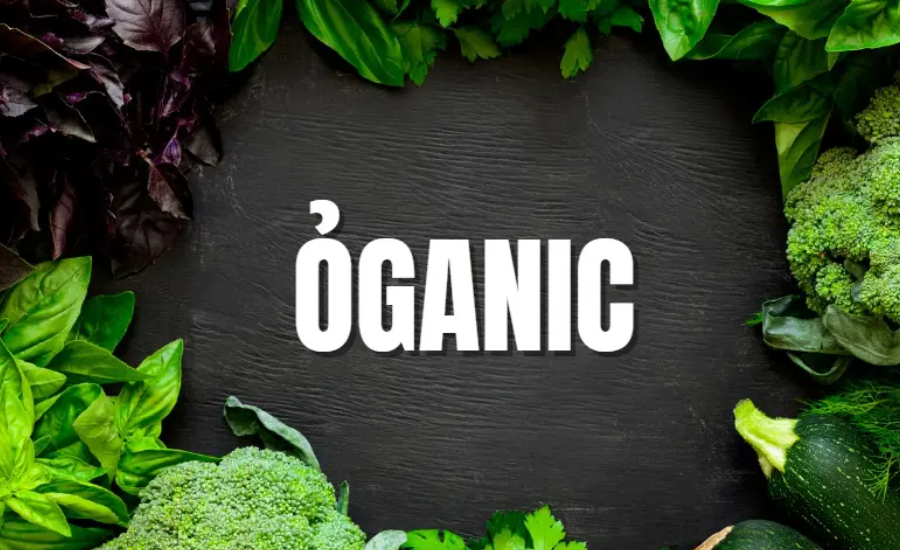Discovering Organic: A Journey of Healthy Living
Organic living focuses on embracing natural, sustainable practices that enhance overall well-being. It involves choosing foods, products, and lifestyle habits that are free from synthetic chemicals, pesticides, and genetically modified organisms (GMOs). By prioritizing organic options, individuals can enjoy a healthier lifestyle that supports the environment, promotes better nutrition, and fosters a deeper connection to nature. This journey toward healthy living empowers individuals to make conscious choices that benefit both personal health and the planet.
A Turning Point in Our Health Journey
One crisp autumn afternoon changed the course of our family’s health journey forever. Fresh from our annual medical check-up, we sat around the kitchen table processing the news we had just received. My youngest son, Timmy, was developing food sensitivities, a worrying sign that something needed to change. Meanwhile, I couldn’t ignore the fact that my own energy levels had been steadily declining, leaving me feeling fatigued and unmotivated. The doctor’s advice echoed in our minds—our eating habits were no longer supporting our well-being.
As we discussed our options, my wife suggested something we hadn’t seriously considered before: switching to organic food. It felt like a bold, almost radical move. After all, organic products were something we’d always seen as a luxury or a trend, not necessarily a lifestyle. But as we weighed the benefits, we realized that this shift might be exactly what we needed to reset our health.
What began as a simple conversation over dinner quickly transformed into a commitment to change the way we approached food and wellness. The more we learned about organic living, the more we understood that it wasn’t just about choosing different ingredients; it was about embracing a healthier, more sustainable way of life. This decision became the turning point that not only improved our physical health but also deepened our awareness of the importance of mindful eating, environmental responsibility, and overall well-being. The journey to discovering organic living became a transformative experience that touched every aspect of our lives, far beyond what we initially imagined.
The First Steps into the World of ỏganic
Our adventure into organic living truly began with what seemed like an ordinary trip to the local farmer’s market, but it turned out to be the spark that ignited a profound lifestyle change. As we wandered through the bustling stalls, the scene was unlike anything we had encountered in our usual grocery store. Bright, vibrant colors of fresh produce stood out against the backdrop of leafy greens, and the air was filled with the crisp, natural aromas of freshly harvested fruits and vegetables. It felt alive, a stark contrast to the sterile, processed environment we had become accustomed to.
The vendors were not just sellers—they were passionate advocates for their products. Each one had a story to tell, sharing with us the deep connections they had with the land and their commitment to sustainable farming practices. Their dedication to organic principles was evident in every conversation, and their enthusiasm was contagious. We learned about the benefits of eating organic, from improved nutrition to reduced exposure to harmful chemicals, and the positive environmental impact of supporting local, sustainable agriculture.
It was here, amidst the lively market atmosphere, that we first encountered a brand that would soon become a cornerstone of our new lifestyle—Organic. The brand’s name stood out, representing a level of quality and care that resonated with us. As we brought home our first basket of organic goods, we began to feel a sense of trust in this new way of living. Organic quickly became synonymous with not just food, but with health, well-being, and a commitment to something bigger than ourselves. Our simple trip to the farmer’s market had turned into the beginning of an exciting and transformative journey toward a healthier, more mindful life.
Discovering ỏganic Products
At the market, we were introduced to an incredible selection of organic products that immediately drew us in. The display was filled with crisp, flavorful apples that glistened in the sunlight, alongside vine-ripened tomatoes that practically burst with juiciness. We explored bins of wholesome grains, each promising a rich source of nutrients, and creamy, fresh dairy that tasted like it had come straight from the farm. Every product we encountered carried a reassuring promise—it was not only free from pesticides, chemicals, and artificial additives but also packed with natural goodness that our bodies could truly benefit from.
The difference in taste was undeniable. Our meals, which had once felt routine and predictable, suddenly became a sensory experience. Each bite was a revelation, bursting with flavors that were richer and more vibrant than we ever imagined. The freshness of the produce and the quality of the ingredients transformed even our simplest dishes into something extraordinary. We found ourselves savoring our food in a way we hadn’t before, truly appreciating the natural taste that only organic ingredients could provide.
What’s more, the impact on our health was almost immediate. Within weeks of embracing organic foods, we began to feel a noticeable difference. We had more energy, fewer digestive issues, and an overall sense of well-being that we hadn’t experienced in years. Our bodies seemed to respond positively to the purity and nutrient density of the food we were consuming. Organic living had quickly become more than just a diet change; it was a pathway to better health, a renewed appreciation for food, and a deeper connection to the way we nourished ourselves and our family.
The Essence of ỏganic
What set Organic apart was not only the outstanding quality of their products but also their deep-rooted commitment to sustainability and responsible farming practices. Each item that carried the Organic label wasn’t just a product—it was a promise. Behind every piece of produce, every grain, and every dairy item was a dedication to preserving the earth’s natural resources, protecting biodiversity, and maintaining the health of the soil. Organic’s approach was about more than just growing food; it was about nurturing the land and ensuring that farming practices today didn’t jeopardize the planet’s future.
Every time we brought home a product with the Organic label, we knew it had been grown and harvested with care for the environment, using methods that avoided harmful chemicals and pesticides. Their commitment to ethical farming meant supporting practices that fostered soil health, conserved water, and reduced carbon footprints. By choosing Organic, we were actively participating in a cycle of sustainability that valued the planet as much as it did the people consuming the food.
Moreover, the brand’s focus on environmental stewardship extended beyond the farm. Organic made a concerted effort to ensure that every step of the process, from production to packaging, was done with minimal impact on the environment. This dedication to sustainability and ethical practices made us feel confident that we weren’t just making healthier choices for our family, but also contributing to a system that would allow future generations to enjoy the same natural abundance. It wasn’t just about eating well today; it was about protecting the planet for tomorrow.
Benefits of Choosing ỏganic
Transitioning to Organic brought a host of significant health benefits that became apparent almost immediately. We soon discovered that the produce we were consuming was not only fresher but also brimming with essential vitamins and minerals that had been depleted in conventionally grown foods. This enhanced nutritional profile contributed to a noticeable boost in our overall well-being. Timmy’s food sensitivities, which had been a source of concern, began to fade, showing a marked improvement in his comfort and health. I, too, experienced a remarkable increase in my energy levels, feeling more revitalized and energetic throughout the day.
Beyond the tangible health improvements, there was an additional layer of satisfaction in our choice to go organic. We felt a profound sense of contentment knowing that our decision was supporting a more sustainable and ethical approach to farming. Organic products are grown with methods that prioritize the health of the soil and the well-being of the farmers and workers involved. This means that the farming practices used avoid harmful chemicals and pesticides, promote biodiversity, and ensure fair treatment and conditions for farm workers.
By supporting Organic, we were also contributing to a system that values long-term environmental stewardship and social responsibility. This holistic approach to farming and food production added an extra dimension to our commitment, making us feel that our dietary choices were aligned with our values. We were not only improving our health but also supporting a farming system that cared for the planet and its people, which provided us with a deeper sense of purpose and satisfaction.
Integrating ỏganic into Our Daily Lives
Our commitment to Organic became increasingly profound with each passing day, leading us to embrace a more adventurous and mindful approach to our meals. We began experimenting with an array of new recipes, incorporating a diverse selection of Organic products into our daily cooking. Our mornings, once routine, became a delightful culinary experience. We discovered the joy of preparing breakfasts with organic oats, which, when paired with a variety of fresh fruits, created nutritious and satisfying meals. The fruit smoothies we blended were not only delicious but also packed with vitamins and minerals, setting a positive tone for the day ahead.
Dinner time evolved into a highlight of our daily routine. We started to experiment with hearty salads made from crisp, organic greens, and flavorful roasted vegetables that were vibrant and full of natural taste. Each meal was a celebration of fresh, wholesome ingredients, and we relished the enhanced flavors and textures that Organic produce offered. The richness and depth of taste in our dishes were noticeably more pronounced, making every meal a more enjoyable experience.
This shift to incorporating Organic ingredients into our cooking not only improved the quality of our meals but also reinforced our commitment to a healthier lifestyle. It became clear that Organic foods were not just a trend but a valuable part of our daily lives, enriching both our diet and our overall well-being. Our kitchen became a place of exploration and creativity, where we could continually discover new ways to enjoy the benefits of Organic living while savoring the natural flavors that came with it.
Building a ỏganic Pantry
To make our transition to Organic living as smooth as possible, we decided to build a well-stocked Organic pantry. We began by carefully selecting and purchasing a range of essential staples that would form the foundation of our meals. Items like beans, rice, and pasta were chosen for their versatility and ability to be used in a variety of dishes. By ensuring that these staples were all organic, we made it easier to prepare every meal with ingredients that aligned with our new lifestyle.
Building this Organic pantry not only simplified our cooking process but also provided us with a sense of security. Knowing that we had a stock of high-quality, organic ingredients on hand meant we could quickly and easily whip up meals without having to compromise on our commitment to healthier, more sustainable choices.
As we began to use these Organic products more regularly, we found ourselves increasingly impressed by their superior quality. The flavors were more vibrant, the textures richer, and the nutritional benefits evident. Our meals became not only more enjoyable but also more nourishing.
Moreover, our experience with Organic foods reinforced our appreciation for their broader impact. We noticed improvements in our overall health, such as increased energy and better digestion, and felt a sense of satisfaction knowing that our food choices were supporting environmentally friendly farming practices. Each meal we prepared with Organic ingredients became a reflection of our dedication to both personal well-being and environmental stewardship, making our commitment to Organic living all the more meaningful and rewarding.
Spreading the Word about ỏganic
Our passion for Organic living quickly began to resonate with our friends and extended family. We took the opportunity to host dinner parties where we highlighted a variety of mouthwatering dishes prepared entirely with Organic ingredients. These gatherings were not just about sharing meals but also about sharing our journey and the benefits we had experienced.
The response from our guests was overwhelmingly positive. They were impressed by the vibrant flavors and high quality of the dishes, and many were intrigued by the health benefits we described. The enthusiasm and satisfaction expressed by our friends and family often led them to consider making the switch to Organic themselves. Our dinners not only allowed us to enjoy and celebrate our new lifestyle but also inspired others to explore and embrace Organic living, expanding the ripple effect of our commitment to healthier and more sustainable choices.
Community Engagement
Our commitment to Organic living soon evolved into a broader community effort, extending our influence beyond our immediate circle. We immersed ourselves in various local initiatives aimed at promoting organic farming and healthy eating. This involvement began with volunteering at local farms, where we gained practical experience in sustainable agriculture and directly contributed to supporting farmers who practiced environmentally friendly methods. Working side by side with these dedicated individuals, we learned about the intricacies of organic farming and witnessed firsthand the positive impact it has on the land and produce.
In addition to our farm volunteering, we actively participated in community workshops focused on organic and sustainable living. These workshops provided valuable opportunities to share our own experiences and learn from others. We engaged with a diverse audience, offering practical advice on incorporating organic foods into daily life and discussing the benefits of a sustainable diet. This collaborative learning environment allowed us to deepen our understanding and contribute to a collective effort toward healthier food practices.
Recognizing the growing interest in organic living, we decided to start a blog to further share our journey and insights. The blog quickly became a vibrant platform where we documented our experiences, shared recipes, and provided tips on transitioning to an organic lifestyle. We included detailed posts about our favorite Organic dishes, cooking techniques, and the benefits we observed. As we consistently updated the blog with informative and engaging content, it began to attract a dedicated following. Readers from various backgrounds connected with our message, and the blog became a hub for like-minded individuals interested in exploring and adopting organic living.
Through our blog and community involvement, we became part of a larger movement advocating for a more sustainable and health-conscious food system. We connected with other activists, joined local food cooperatives, and participated in campaigns that aimed to raise awareness about the benefits of organic farming. This broader engagement allowed us to contribute to a growing network of individuals and organizations working toward positive changes in the food industry. Our journey from personal commitment to community advocacy not only enriched our own lives but also helped foster a collective effort toward a more sustainable and nutritious future.
Overcoming Challenges
Embracing Organic living came with its set of challenges. We soon discovered that Organic products often came with a higher price tag and that their availability could fluctuate, particularly during off-seasons. This meant that, at times, it was difficult to find certain items or to stay within our budget.
Despite these obstacles, we adapted by adopting effective strategies to manage our new lifestyle. We began to carefully budget our grocery expenses, plan our meals in advance, and take full advantage of seasonal produce. By focusing on what’s in season and planning our meals around these ingredients, we were able to optimize our spending and ensure a steady supply of fresh, Organic foods.
Though the transition presented initial difficulties, the long-term benefits of adopting an Organic lifestyle became evident. The positive impacts on our health, coupled with the satisfaction of supporting sustainable farming practices, made the initial inconveniences worthwhile. The commitment to Organic living not only enhanced our overall well-being but also aligned with our values, reinforcing that the benefits far surpassed the early challenges.
Creative Solutions
To navigate the challenges of embracing Organic living, we sought out innovative solutions. One of the most rewarding steps we took was starting a small vegetable garden in our backyard. This allowed us to grow our own Organic herbs and vegetables, significantly lowering our grocery expenses. Beyond the financial benefits, tending to our garden provided us with a profound appreciation for the effort and dedication required in organic farming.
Gardening also became a cherished family activity, combining both fun and educational aspects. It offered us an opportunity to engage in hands-on learning about where our food comes from and how it grows. The process of nurturing plants from seedlings to harvest deepened our connection to the food we eat and enriched our understanding of sustainable practices. This personal involvement not only alleviated some of the challenges we faced but also strengthened our commitment to living organically.
FAQS
Q: What is organic living?
A: Organic living involves choosing foods, products, and lifestyle habits that are free from synthetic chemicals, pesticides, and GMOs. It focuses on natural, sustainable practices to enhance overall well-being and support environmental health.
Q: What inspired your transition to organic living?
A: Our transition was inspired by health concerns within our family, including food sensitivities and declining energy levels. We realized that adopting organic foods might improve our health and reset our eating habits.
Q: How did you start incorporating organic products into your life?
A: We began by visiting a local farmer’s market, where we discovered the benefits and variety of organic products. This initial experience led us to build an organic pantry and explore new recipes with these ingredients.
Q: What are the health benefits of choosing organic foods?
A: Organic foods are often fresher and contain more nutrients than conventionally grown products. We noticed increased energy, fewer digestive issues, and overall better well-being after switching to organic.
Q: How did you overcome the challenges of higher costs and availability?
A: We managed higher costs by budgeting wisely and planning meals around seasonal produce. Starting a backyard vegetable garden also helped reduce grocery expenses and provided a deeper appreciation for organic farming.
Q: How did you involve others in your organic journey?
A: We hosted dinner parties to showcase organic dishes, which received positive feedback and inspired friends and family to consider organic living. We also volunteered at local farms, participated in community workshops, and started a blog to share our experiences and recipes.
Q: What is the essence of organic products?
A: Organic products are grown with a commitment to sustainability and environmental stewardship. They are free from harmful chemicals and pesticides, and their production supports biodiversity and soil health.
Conclusion
Our journey into organic living has been transformative, reshaping our approach to food and wellness. What began as a response to health concerns quickly evolved into a deeply fulfilling lifestyle choice that prioritizes both personal well-being and environmental stewardship. Embracing organic practices has not only improved our health but also connected us to a community of like-minded individuals dedicated to sustainable living. Through exploring local markets, building a diverse organic pantry, and engaging in community advocacy, we’ve discovered that organic living is more than just a dietary change—it’s a holistic way of life that enriches both our daily experiences and our broader impact on the planet. As we continue this journey, we remain inspired by the benefits and satisfaction that come from making mindful choices and supporting a healthier, more sustainable future.
Read More: Aoomal blog






